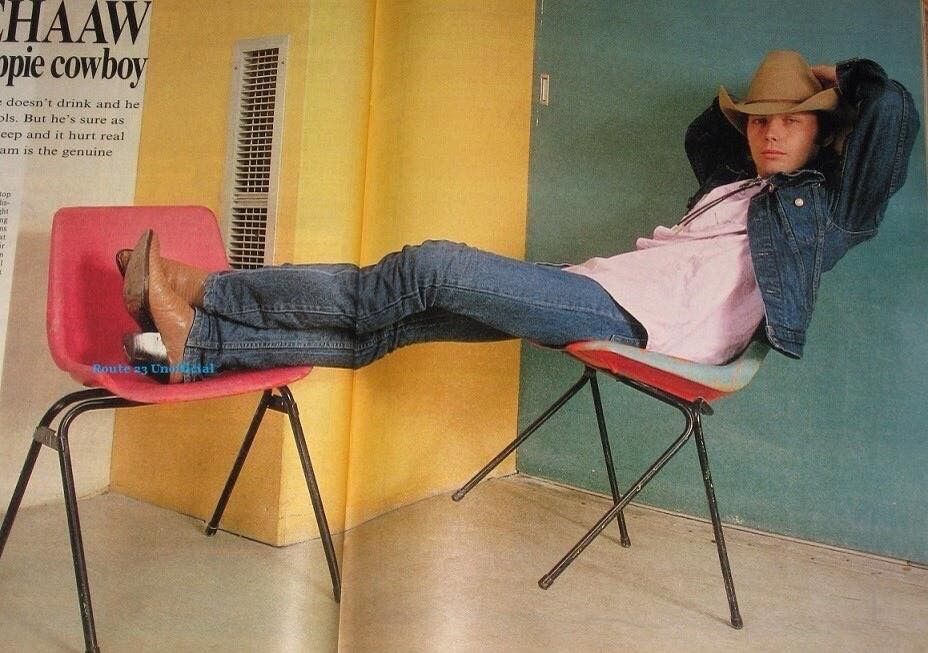
A waltz of denial and discovery—“One More Name” finds Dwight Yoakam catching a lover’s secret in the hush between breaths, and deciding what kind of man he’ll be when the truth finally speaks.
Key facts, right up front. “One More Name” is the second track on Buenas Noches from a Lonely Room, released August 2, 1988 on Reprise and produced by Pete Anderson. Running just over 3:05, it wasn’t worked to radio as its own single, but it did ride the flip of Yoakam’s duet hit “Streets of Bakersfield” in June 1988 (U.S. 7-27964)—so countless fans first met it by turning the 45 over. The song itself never charted separately; the album, however, went No. 1 on Billboard’s Top Country Albums and No. 68 on the Billboard 200, and that A-side duet with Buck Owens became Yoakam’s first Hot Country Singles No. 1.
In the album’s design, “One More Name” sits where the story takes its first hard turn. Critics and biographers have often read the LP’s first side as a tense arc—jealousy gnawing at a man who fears betrayal, leading toward the lethal heartbreak of the title waltz later on. Whether or not you hear a strict concept sequence, the placement is no accident: this song is the moment when rumor turns into evidence, and the singer’s pride starts to give way.
What gives it such sting is how plainly it speaks. Without ever resorting to melodrama, Yoakam writes a scene most grown listeners recognize: friends warn you, you brush them off, and then, in the small hours, a name you weren’t meant to hear slips into the air. The lyric sketches denial giving way to comprehension; each verse feels like a step taken slowly down a hallway you’ve walked a thousand times, suddenly aware of every creak in the floorboards. Contemporary write-ups singled out the cut for its prettier surface hiding a bleak core—a classic Bakersfield trick, the sad news delivered by a graceful melody that keeps your feet moving even as your chest tightens.
Part of the emotional authority here is the setting. The record was cut in Hollywood’s Capitol studios, where the room itself seems to put a halo on the high tenor; Anderson’s guitars and the band’s pocket do what the best Yoakam tracks always do—glide and bite at the same time. On the album as a whole you’ll hear the Tex-Mex colors of accordion great Flaco Jiménez, but “One More Name” keeps to Yoakam’s core vocabulary: Telecaster angles, pedal-steel ache, and that steady, heartbeat waltz time. It’s country as lived practice—ornamented only where feeling requires it.
For those who encountered it as the B-side to “Streets of Bakersfield,” the pairing was telling. The A-side—joyous, history-mending, and celebratory—claimed the headlines and the chart summit. Flip it and you land in the private room where bravado falls away. That juxtaposition—public triumph vs. private reckoning—isn’t just savvy sequencing; it maps the way heartache actually announces itself in life, quietly and without ceremony.
And then there’s the meaning that lingers for older ears. “One More Name” understands that infidelity isn’t only a plot point; it’s a slow accumulation of tells—gossip you refused to believe, the off-hand remark you tried to forget, the last straw you didn’t want to feel. Yoakam sings not like a man raging at betrayal, but like one measuring what it will cost to keep pretending. That restraint is its own drama. The song doesn’t need a shouted verdict; it lets the listener do the arithmetic and live with the result.
Placed in Yoakam’s late-’80s moment, the cut deepens the larger triumph of Buenas Noches from a Lonely Room. That album gave him a pair of No. 1 country singles (“Streets of Bakersfield” and “I Sang Dixie”) and established, once and for all, that his honky-tonk classicism could carry modern weight. “One More Name,” nestled early in the sequence, is a quiet pillar of that case: proof that traditional tools—three chords, a keen eye, a voice that can bend without breaking—still tell the most durable truths.
If you spin it tonight, you may feel old rooms return: the radio low in a kitchen, a clock ticking too loudly, someone you love asleep beside you while your thoughts pace the floor. The beauty of the performance is that it offers no tidy moral, only company—an honest voice standing with you as you face what’s already there. And that’s why, decades on, “One More Name” still feels like a confidant rather than a confession. It doesn’t scold, and it doesn’t flinch. It simply opens the door to the truth and waits with you, long enough to decide who you’re going to be.